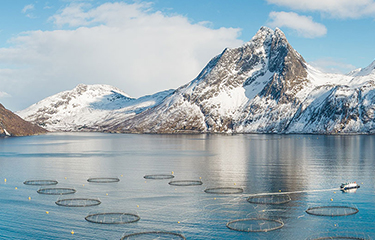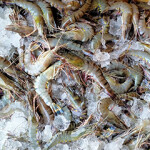Nearly scuttled by proposed tax increase, SalMar-NRS merger gets EU go-ahead

Frøya, Norway-headquartered salmon-farming company SalMar’s proposed share buyout of NTS and its subsequent merger with Norway Royal Salmon (NRS) have received clearance from the European Commission.
SalMar confirmed the approval in a new filing with the Euronext Growth Oslo stock exchange. It stated that the E.C. found the share offer, and consequently the merger, to be compatible with E.U. regulations.
“By unconditionally clearing the transaction, both the Norwegian Competition Authority and the European Commission have confirmed that the transaction will not lead to any significant impediment of effective competition in the market for farming of Norwegian salmon,” it said.
In order to gain clearance from the European Commission, SalMar has undertaken a commitment to divest the 16,346,824 shares in Arctic Fish Holding, currently held by NRS, that will be assumed by SalMar upon completion of the merger. The shares represent approximately 51.28 percent of the shares and votes in the Icelandic salmon farming company. Mowi has entered into an agreement to acquire these shares for a price of NOK 115 (USD 11.17, EUR 11.25) per share.
This purchase remains subject to other conditions as well, and SalMar said it would provide more details in its upcoming quarterly presentation on 10 November, 2022. But SalMar said there was a “strong strategic and operational rationale” for a completion of the merger and the offer, even though Norway’s proposed tax hike on salmon farmers is providing “an uncertain situation for SalMar, NTS, and NRS.”
“The combination will strengthen the activities in the regions where we operate. These are the core regions in an industry in which Norway is the world leader,” it said. “We believe, in spite of a tax proposal creating uncertainty in this industry, that striving for continued sustainability, operational excellence, and efficient use of resources remains the best path to protect jobs and value creation in this rurally-based production.”
The filing revealed SalMar had considered revising the offer terms in light of the government's tax proposals, but ultimately decided against the move.
“This would have put the combination as such in jeopardy,” it said. “While the industry will have to scale back and reduce planned investments going forward, the need to seek efficiency and economies of scale has become even greater."
SalMar added that the increased resources could be helpful in light of the tax proposal.
“The entire industry will have to reassess its growth strategies and structures, and SalMar welcomes the increased resource base and operational leverage the transaction entails," it said.
SalMar said that it is expecting significant synergies to be realized through a more-efficient utilization of the companies' resources.
“The combination will facilitate improved capacity utilization of the combined maximum-allowed biomass and site portfolio, as well as the implementation of operational excellence, which in total are expected to provide even better biological results and lower production costs,” it said. “Further, the parties have strong expertise within sales and distribution, and the combination will provide improved security for delivery of our products to customers worldwide.”
Photo courtesy of SalMar





Share